the void is something i fight every day. i fight it when i wake up in the morning and defy it when i get out of bed. it continues its hum in my ear, so i dance to music while i start my day and put on a sitcom while i eat breakfast.
for most of my life, i had two main strategies for fending off the sound of the void that hummed increasingly louder in my head as the days went by. these were:
reading reading reading. i needed to consume as many lives as i could in the single lifetime i’ve been given. my own experiences are limited- i didn’t want to miss a single thing.
writing writing writing. i have moleskines filled with memories, written and photographed. what’s the point of living if you’re not going to turn it into something beautiful?
these are good strategies in moderation, but fighting the void requires variety. if you spend all your time with your nose in a book or your eyes on the television, the void will eventually learn how to creep its way through.
(i say fight instead of conquer because i’m never going to conquer the void. no amount of prozac will ever conquer the thought of impending death and an infinite universe. and that’s okay- i’m not sure if the void should be conquered. i think conquering the void leads to people like elon musk and jeff bezos: humans who have lost their humanity, who view life as a video game that they’re winning and view the rest of us as NPCs.)
the term “woman vs. the void” began appearing online sometime within the past few years, and for the life of me i cannot find who coined it first. it’s a play on literary terms such as “man vs. self” & “man vs. nature,” but instead of a man fighting his own internal conflicts or fighting his way through the wilderness, the main character is a depressed woman trying to navigate her life filled with existential dread.
Sylvia Plath’s 1963 novel The Bell Jar, about a college girl’s descent into depression, is often referred to as the one that started it all, but the genre spans as far back as the late 19th century with Charlotte Perkins Gilman’s “The Yellow Wallpaper” and Kate Chopin’s The Awakening. both are stories of female depression in a time when women were sent away, confined, and pronounced hysterical for exhibiting depressive symptoms, for succumbing to the void.
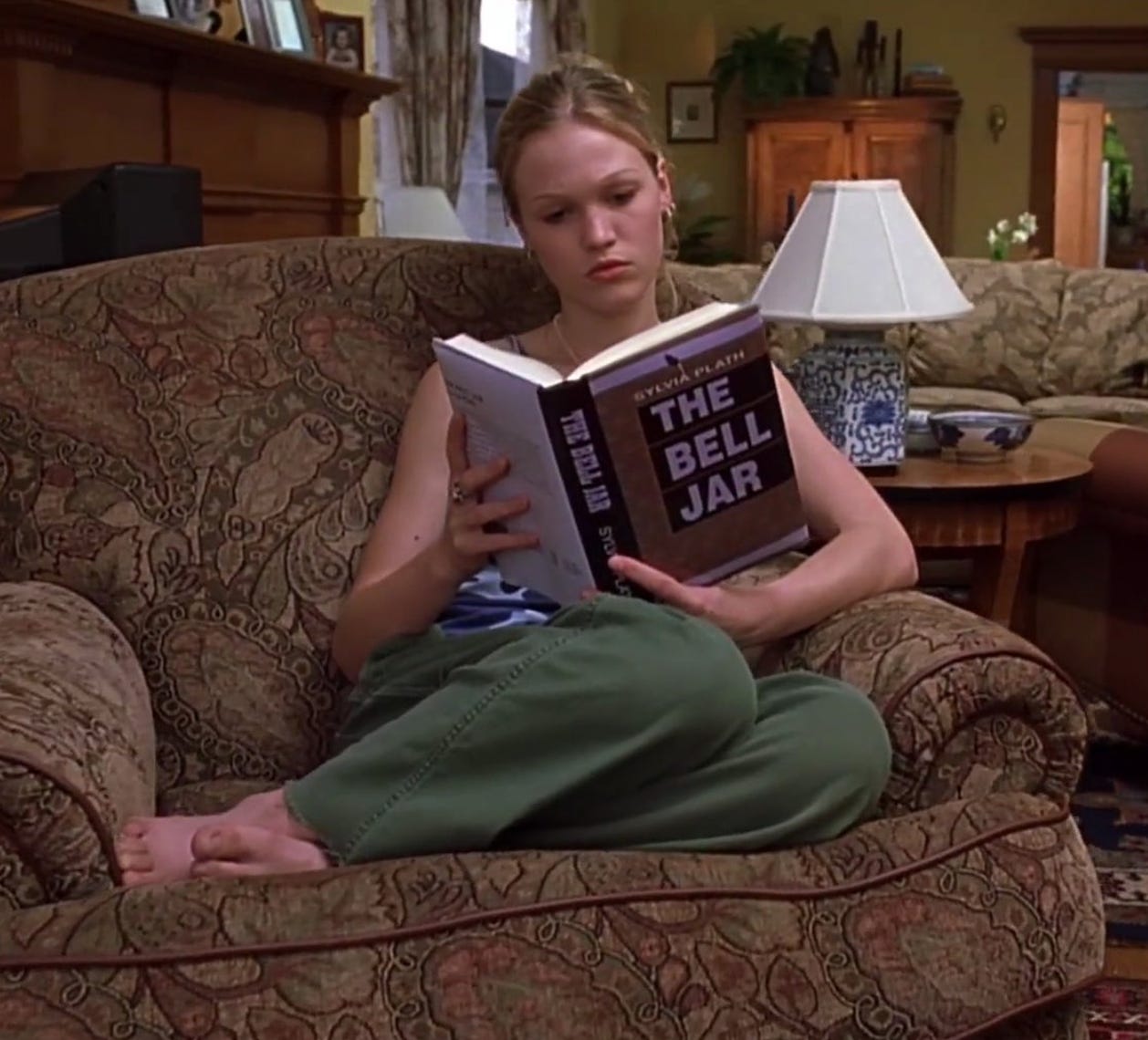
while novels like I Never Promised You a Rose Garden (Joanne Greenberg) and The Edible Woman (Margaret Atwood) were published around the same time as The Bell Jar and dealt with the same themes of mental illness and women going to desperate lengths to silence the hum of the void, they didn’t take off the way Plath’s novel did. (Plath’s suicide just one month after the publication of The Bell Jar likely led to increased sales due to the autobiographical nature of the work.)
however, it wasn’t until Ottessa Moshfegh published My Year of Rest and Relaxation in 2018 that the term “woman vs. the void” began to make itself known ‘round the internet. the genre garnered a cult-like following and became a defining aesthetic for a generation of literary sad girls.

My Year of Rest and Relaxation is a satirical take on the pharmaceutical industry and millennial depression, following a year in the life of an unnamed narrator in NYC as she perfects the ultimate cocktail of meds that will cause her to sleep as much as possible, in the hopes that it will hit the reset button on her life. like the rest of Moshfegh’s protagonists, the narrator boasts an immensely unlikeable personality, yet she’s captivated the souls of depressed girls across the internet. while most fans of MYORAR embrace the sleepy girl aesthetic ironically, Moshfegh has commented that her “sad girl fans concern [her]”¹.
the success of MYORAR has spurred on the phenomena of the “woman vs. the void” genre and aesthetic. searching “woman vs the void” on tikok leads to hundreds of videos of book recs with tags such as “sadgirlbookrecs” and “hotgirlsread.” instagram meme pages churn out posts such as:
i totally enjoy these memes as much as the next person, but i think it’s important to remember that the goal is to fight and defy the void, not succumb to it.
that said, i am a sucker for woman vs. the void. these books remind me that we’re all here together on this speck of dust in space wondering what the hell we’re doing here. there are hundreds of millions of us reading & writing literature about it, making memes about it, writing songs about it… i love being shown how other people experience the void, how they find meaning in spite of it all. even those who lost the fight left behind incredible art & literature about their time here on earth that make lasting impressions on people every day.
after years of reading & writing in isolation in attempts to fight the void, i’ve realized that what silences the hum most effectively is human connection. for me, this doesn’t mean going to clubs or being around people 24/7. it means incorporating meaningful human connection along with my interests. for reading, i share my love of books on instagram & substack to connect with other book lovers, and i recently joined a book club. for writing, i’ve started sharing my writing on substack and making connections with readers & other writers. (i’m also considering joining a local writing group!) and connecting with others doesn’t need to always center around your interests- just meeting a friend for coffee and chatting about life for two hours makes me feel like i can take on the world.





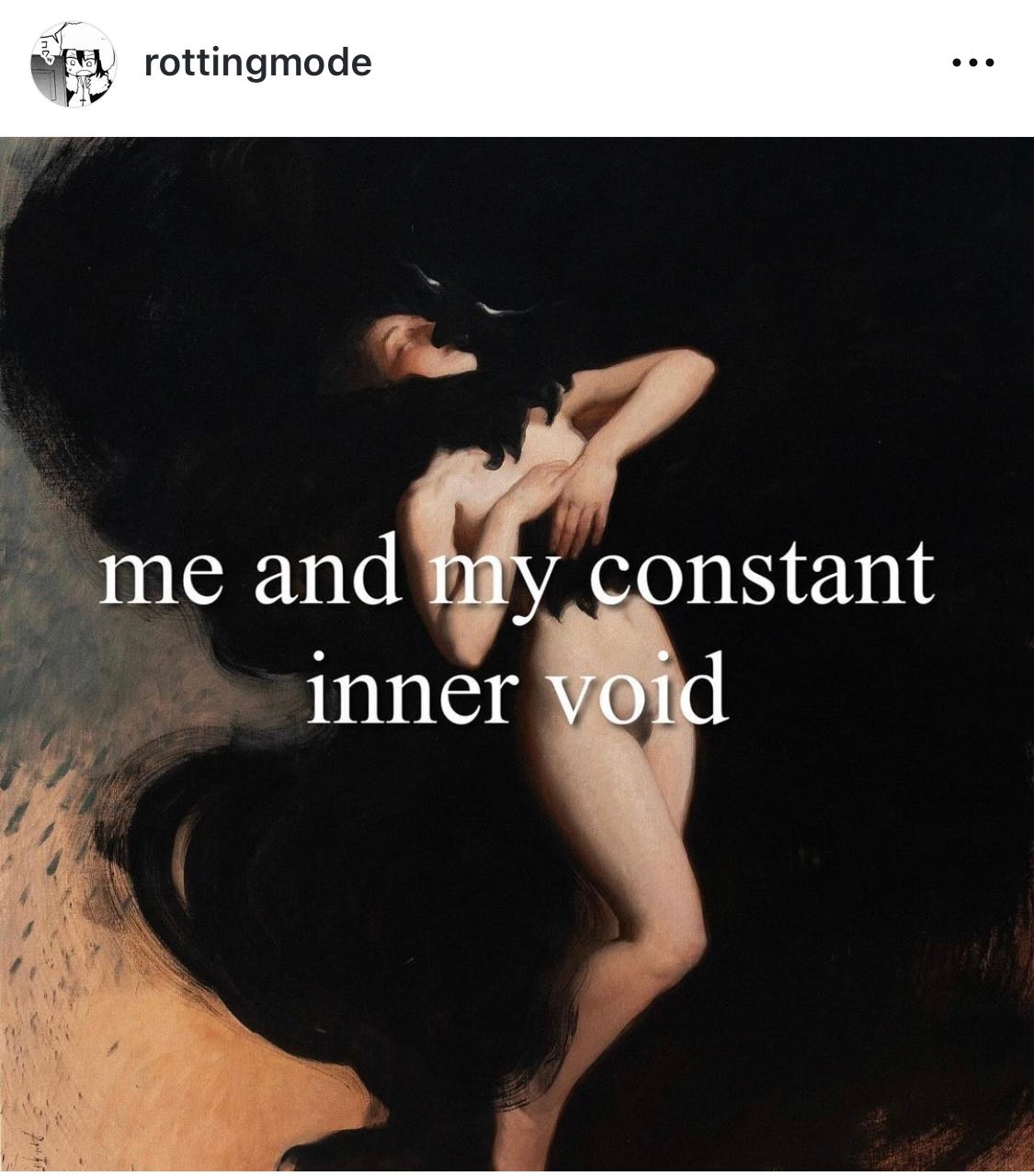
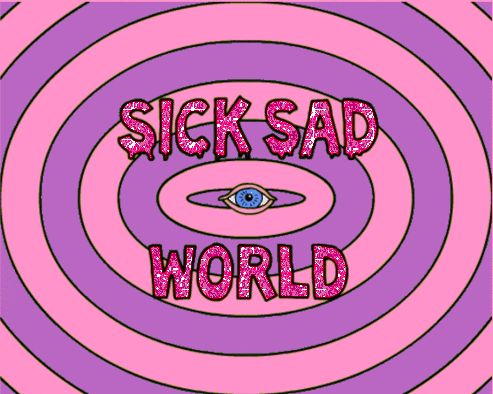

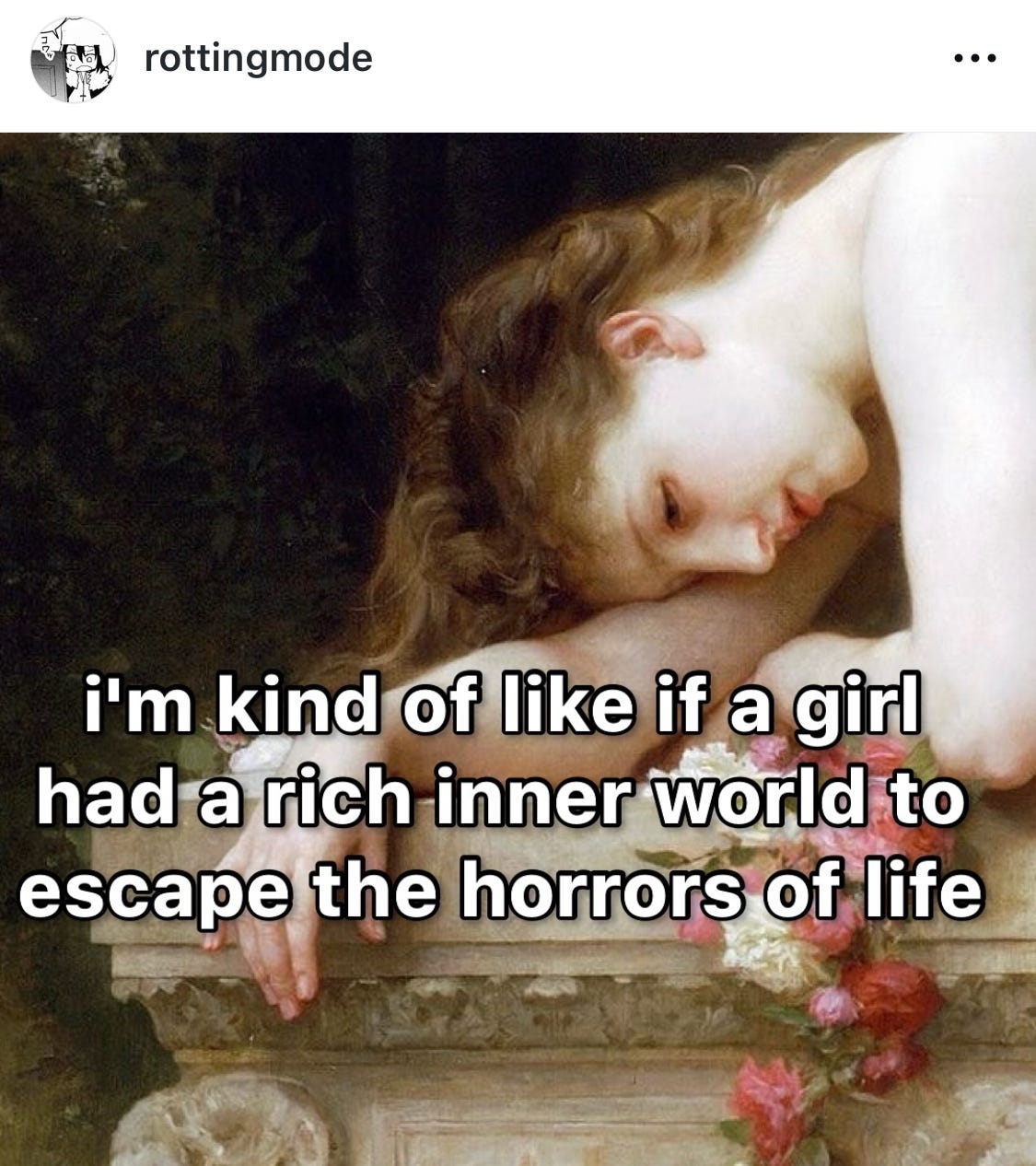




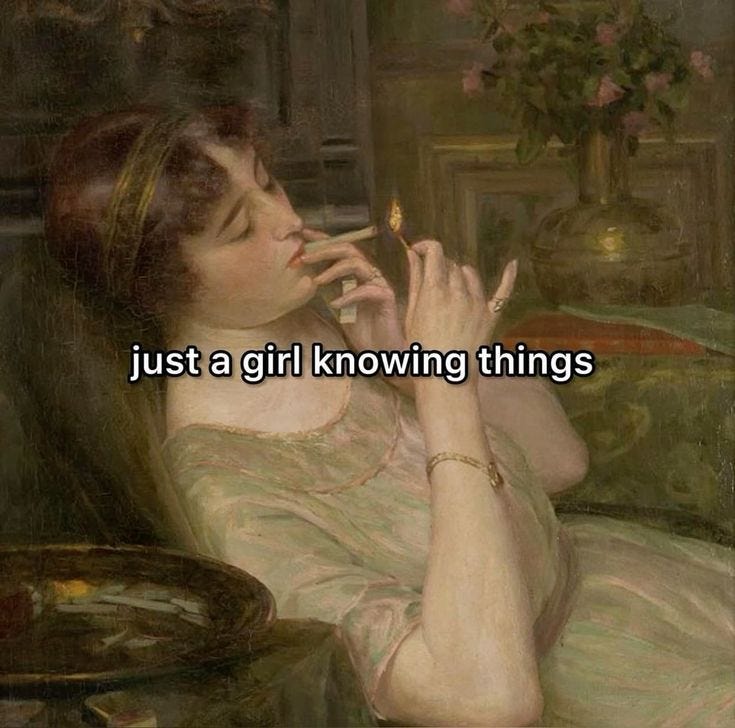
This makes me feel so seen. I love the bit about not conquering but fighting it the distinction I believe is significantly important. Women vs void and deranged messy women has easily been my favourite genre to read this year. The reading reading and writing writing is so real lol I feel so agitated and restless unless I am constantly indulging in something as if I were to take a minute to breathe and just exist the void might manifest as a real entity and consume me. But I love the suggestion about human connection I feel like you really may be onto something there. Someone truly needed to write this piece and you did a wonderful job 💗
loved this! thank you so much🤍🌼